NASA Has Released New Images Of Jupiter, Taken By The Juno Spacecraft.
NASA has released new images of Jupiter, taken by the Juno Spacecraft.
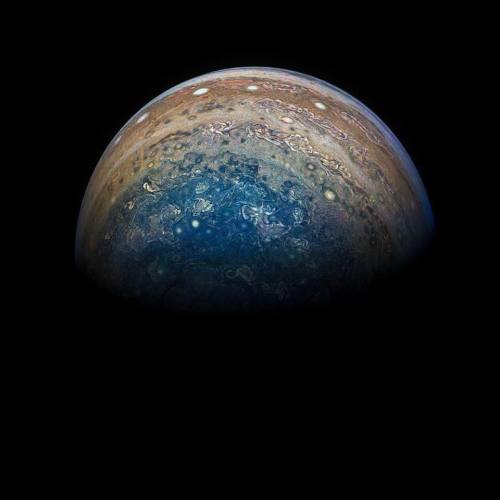

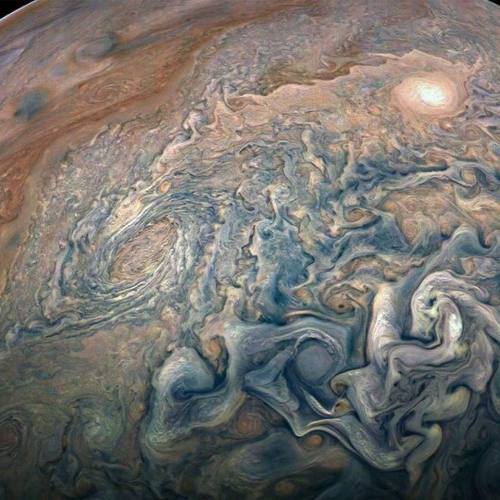
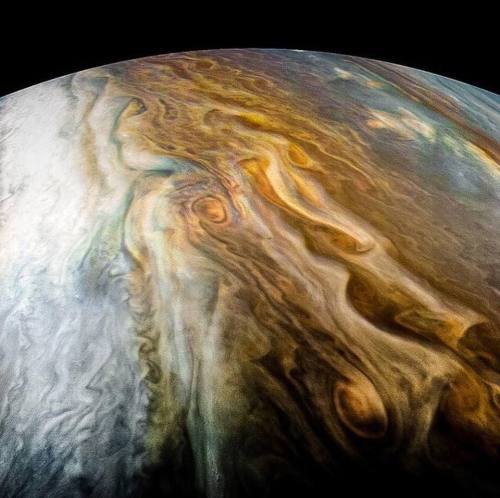
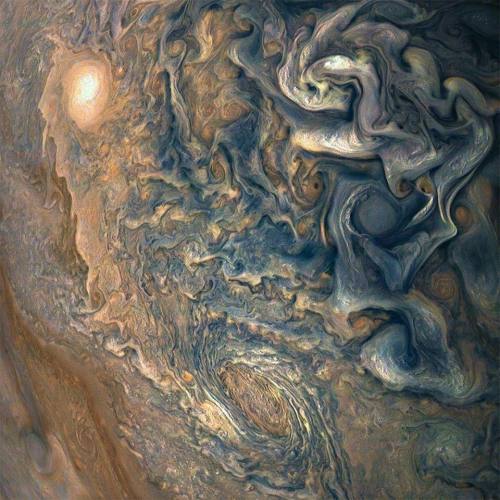


More Posts from Sciencebloggin and Others



The sand in Okinawa, Japan, is made up of tiny stars! These ‘stars’ are exoskeletons of marine protozoans that lived on the ocean floor up to 550 million years ago.
Facebook | Instagram | Scary Story Website
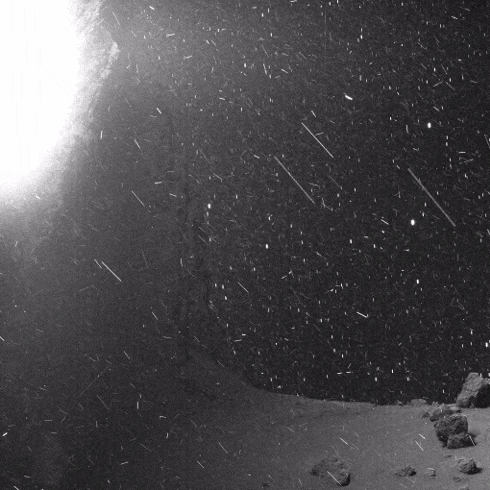
VIDEO FROM THE SURFACE OF A COMET
This is truly incredible.
Details:
Remember Rosetta? That comet-chasing European Space Agency (ESA) probe that deployed (and accidentally bounced) its lander Philae on the surface of Comet 67P? This GIF is made up of images Rosetta beamed back to Earth, which have been freely available online for a while. But it took Twitter user landru79 processing and assembling them into this short, looped clip to reveal the drama they contained.

I’m getting very emotional over the poetic and potentially final message sent out by the mars opportunity rover 😥

Ronald Erwin McNair was born in 1950 in Lake City, South Carolina. He was an American physicist and NASA astronaut and a man of many accomplishments. His favorite activities were running, boxing, football, playing cards, and cooking. When he was a 9-year-old boy he refused to leave the segregated Lake City Public Library without being allowed to check out his books. When the police knew about the incident, they let him keep those books and 26 years later, after his death, Lake City Public library was named after him.

McNair had a bachelor degree of Science in Engineering Physics and a Ph.D. degree from MIT, in Physics. He gained national notoriety for his work in the field of laser physics. Above that, he was a 5th-degree black Karate instructor and jazz saxophonist.

Dr. Ronald E. McNair memorial in his hometown, Lake City, South Carolina.
Ronald McNair was killed on January 28, 1986, when the space shuttle Challenger exploded.
Don’t let people forget about such dedicated and notable Black men like Ronald Erwin McNair. His name deserves to be in all History books.
#BlackHistoryMonth
Rotating clouds above Denver
Astronaut tweets
























NASA scientists working back in 1961 looks pretty similar to us trying to make plans in a group message today. 😂 📷: J. R. Eyerman, LIFE magazine t http://ift.tt/2erI9TF


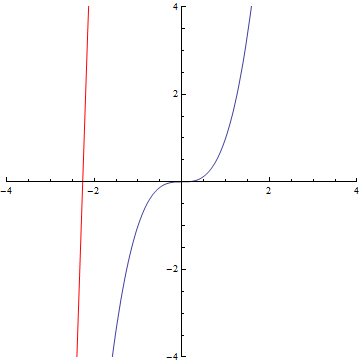

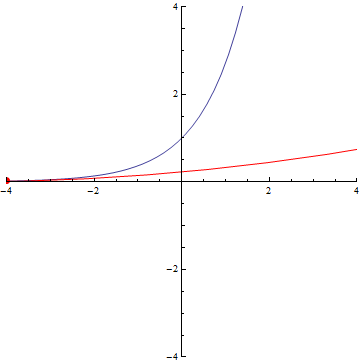


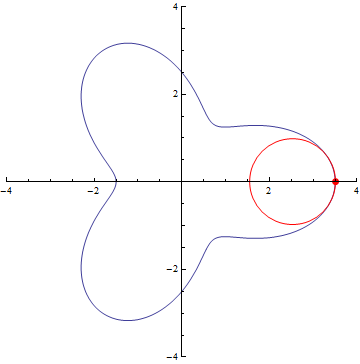



The curvature of curves.
x²
x³
sin(x)
exp(x)
Normal distribution (y=exp(-x²/2))
Ellipse
r=5/2+cos(3τθ)
x=(t-1)(t+1), y=t(t-1)(t+1)
Archimedes’ Spiral
Logarithmic spiral
If you want to try your own curve, try on Desmos graphing calculator!
https://www.desmos.com/calculator/lpm3igzbhy
Solar System: 10 Things to Know This Week
Pioneer Days
Someone’s got to be first. In space, the first explorers beyond Mars were Pioneers 10 and 11, twin robots who charted the course to the cosmos.

1-Before Voyager

Voyager, with its outer solar system tour and interstellar observations, is often credited as the greatest robotic space mission. But today we remember the plucky Pioneers, the spacecraft that proved Voyager’s epic mission was possible.
2-Where No One Had Gone Before

Forty-five years ago this week, scientists still weren’t sure how hard it would be to navigate the main asteroid belt, a massive field of rocky debris between Mars and Jupiter. Pioneer 10 helped them work that out, emerging from first the first six-month crossing in February 1973. Pioneer 10 logged a few meteoroid hits (fewer than expected) and taught engineers new tricks for navigating farther and farther beyond Earth.
3-Trailblazer No. 2

Pioneer 11 was a backup spacecraft launched in 1973 after Pioneer 10 cleared the asteroid belt. The new mission provided a second close look at Jupiter, the first close-up views of Saturn and also gave Voyager engineers plotting an epic multi-planet tour of the outer planets a chance to practice the art of interplanetary navigation.
4-First to Jupiter

Three-hundred and sixty-three years after humankind first looked at Jupiter through a telescope, Pioneer 10 became the first human-made visitor to the Jovian system in December 1973. The spacecraft spacecraft snapped about 300 photos during a flyby that brought it within 81,000 miles (about 130,000 kilometers) of the giant planet’s cloud tops.
5-Pioneer Family

Pioneer began as a Moon program in the 1950s and evolved into increasingly more complicated spacecraft, including a Pioneer Venus mission that delivered a series of probes to explore deep into the mysterious toxic clouds of Venus. A family portrait (above) showing (from left to right) Pioneers 6-9, 10 and 11 and the Pioneer Venus Orbiter and Multiprobe series. Image date: March 11, 1982.
6-A Pioneer and a Pioneer

Classic rock has Van Halen, we have Van Allen. With credits from Explorer 1 to Pioneer 11, James Van Allen was a rock star in the emerging world of planetary exploration. Van Allen (1914-2006) is credited with the first scientific discovery in outer space and was a fixture in the Pioneer program. Van Allen was a key part of the team from the early attempts to explore the Moon (he’s pictured here with Pioneer 4) to the more evolved science platforms aboard Pioneers 10 and 11.
7-The Farthest…For a While

For more than 25 years, Pioneer 10 was the most distant human-made object, breaking records by crossing the asteroid belt, the orbit of Jupiter and eventually even the orbit of Pluto. Voyager 1, moving even faster, claimed the most distant title in February 1998 and still holds that crown.
8-Last Contact

We last heard from Pioneer 10 on Jan. 23, 2003. Engineers felt its power source was depleted and no further contact should be expected. We tried again in 2006, but had no luck. The last transmission from Pioneer 11 was received in September 1995. Both missions were planned to last about two years.
9-Galactic Ghost Ships

Pioneers 10 and 11 are two of five spacecraft with sufficient velocity to escape our solar system and travel into interstellar space. The other three—Voyagers 1 and 2 and New Horizons—are still actively talking to Earth. The twin Pioneers are now silent. Pioneer 10 is heading generally for the red star Aldebaran, which forms the eye of Taurus (The Bull). It will take Pioneer over 2 million years to reach it. Pioneer 11 is headed toward the constellation of Aquila (The Eagle) and will pass nearby in about 4 million years.
10-The Original Message to the Cosmos

Years before Voyager’s famed Golden Record, Pioneers 10 and 11 carried the original message from Earth to the cosmos. Like Voyager’s record, the Pioneer plaque was the brainchild of Carl Sagan who wanted any alien civilization who might encounter the craft to know who made it and how to contact them. The plaques give our location in the galaxy and depicts a man and woman drawn in relation to the spacecraft.
Read the full version of this week’s 10 Things article HERE.
Make sure to follow us on Tumblr for your regular dose of space: http://nasa.tumblr.com.
-
 ashfly reblogged this · 3 weeks ago
ashfly reblogged this · 3 weeks ago -
 cyclicalaberration reblogged this · 3 weeks ago
cyclicalaberration reblogged this · 3 weeks ago -
 cyclicalaberration liked this · 3 weeks ago
cyclicalaberration liked this · 3 weeks ago -
 blackout-galaxy reblogged this · 3 weeks ago
blackout-galaxy reblogged this · 3 weeks ago -
 greenbriar11 reblogged this · 3 weeks ago
greenbriar11 reblogged this · 3 weeks ago -
 la-monna-smile reblogged this · 1 month ago
la-monna-smile reblogged this · 1 month ago -
 sweatywitchchild liked this · 1 month ago
sweatywitchchild liked this · 1 month ago -
 hcolleen reblogged this · 2 months ago
hcolleen reblogged this · 2 months ago -
 jadebrightwind liked this · 2 months ago
jadebrightwind liked this · 2 months ago -
 dolce-tenebra-toscana reblogged this · 2 months ago
dolce-tenebra-toscana reblogged this · 2 months ago -
 dolce-tenebra-toscana liked this · 2 months ago
dolce-tenebra-toscana liked this · 2 months ago -
 necroneos reblogged this · 2 months ago
necroneos reblogged this · 2 months ago -
 mythixprincess reblogged this · 2 months ago
mythixprincess reblogged this · 2 months ago -
 almightycows reblogged this · 2 months ago
almightycows reblogged this · 2 months ago -
 marie-golds-bleeding-ink liked this · 2 months ago
marie-golds-bleeding-ink liked this · 2 months ago -
 kazimakuwabara reblogged this · 2 months ago
kazimakuwabara reblogged this · 2 months ago -
 phoomwhoosh reblogged this · 2 months ago
phoomwhoosh reblogged this · 2 months ago -
 phoomwhoosh liked this · 2 months ago
phoomwhoosh liked this · 2 months ago -
 crimsonblackrose reblogged this · 2 months ago
crimsonblackrose reblogged this · 2 months ago -
 shishkahuben liked this · 2 months ago
shishkahuben liked this · 2 months ago -
 witchydarling reblogged this · 2 months ago
witchydarling reblogged this · 2 months ago -
 okamigamer reblogged this · 2 months ago
okamigamer reblogged this · 2 months ago -
 skulltaffy reblogged this · 2 months ago
skulltaffy reblogged this · 2 months ago -
 heavyweaponsentity reblogged this · 2 months ago
heavyweaponsentity reblogged this · 2 months ago -
 monster-in-orlais reblogged this · 2 months ago
monster-in-orlais reblogged this · 2 months ago -
 onanightofwintryfog liked this · 2 months ago
onanightofwintryfog liked this · 2 months ago -
 vallaragna liked this · 2 months ago
vallaragna liked this · 2 months ago -
 flashedarrow reblogged this · 2 months ago
flashedarrow reblogged this · 2 months ago -
 writing-apprentice reblogged this · 2 months ago
writing-apprentice reblogged this · 2 months ago -
 leporinesaber reblogged this · 2 months ago
leporinesaber reblogged this · 2 months ago -
 kazimakuwabara liked this · 2 months ago
kazimakuwabara liked this · 2 months ago -
 safetytank reblogged this · 2 months ago
safetytank reblogged this · 2 months ago -
 bog-walk reblogged this · 2 months ago
bog-walk reblogged this · 2 months ago -
 princessgirl420 liked this · 2 months ago
princessgirl420 liked this · 2 months ago -
 keepsakeknicks reblogged this · 2 months ago
keepsakeknicks reblogged this · 2 months ago -
 eclectichellmouth reblogged this · 2 months ago
eclectichellmouth reblogged this · 2 months ago -
 12angry liked this · 2 months ago
12angry liked this · 2 months ago -
 she-is-heaven-sent liked this · 3 months ago
she-is-heaven-sent liked this · 3 months ago -
 sentimentalvalues reblogged this · 3 months ago
sentimentalvalues reblogged this · 3 months ago -
 sentimentalvalues liked this · 3 months ago
sentimentalvalues liked this · 3 months ago -
 sodramaticandflamboyant liked this · 3 months ago
sodramaticandflamboyant liked this · 3 months ago -
 armyofone reblogged this · 3 months ago
armyofone reblogged this · 3 months ago -
 a495com reblogged this · 4 months ago
a495com reblogged this · 4 months ago -
 mariannetheflash reblogged this · 4 months ago
mariannetheflash reblogged this · 4 months ago -
 quoiagrl liked this · 4 months ago
quoiagrl liked this · 4 months ago -
 coffee-without-anesthetics reblogged this · 4 months ago
coffee-without-anesthetics reblogged this · 4 months ago -
 mariannetheflash liked this · 4 months ago
mariannetheflash liked this · 4 months ago
